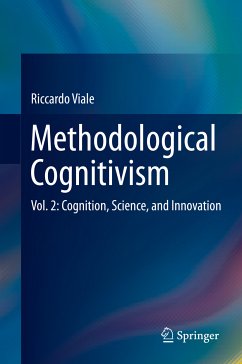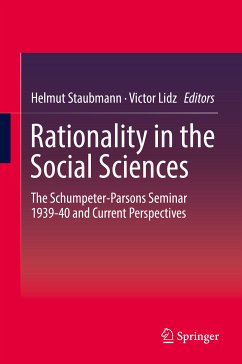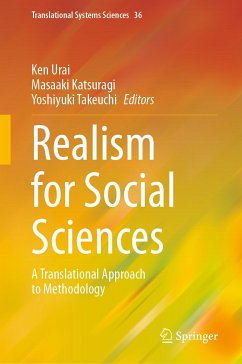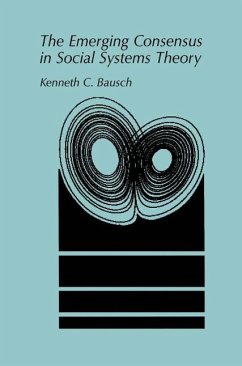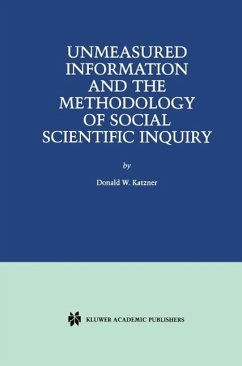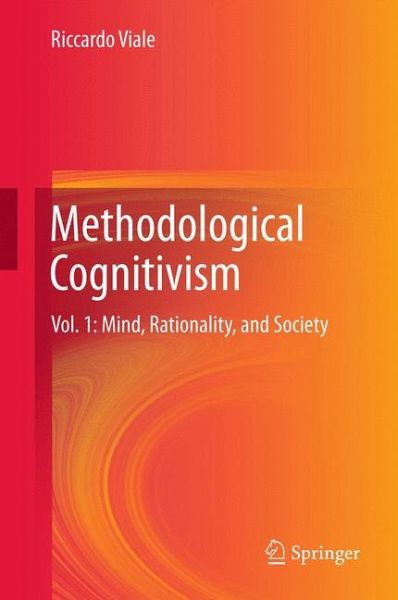
Methodological Cognitivism (eBook, PDF)
Vol. 1: Mind, Rationality, and Society
Versandkostenfrei!
Sofort per Download lieferbar
72,95 €
inkl. MwSt.
Weitere Ausgaben:

PAYBACK Punkte
36 °P sammeln!
This book deals with the cognitive foundation of the theory of social action. The social sciences are still guided by models of social action, far from the empirical reality of the psychology of action. While economics seems to have made greater progress in accepting the changes to the theory of action derived from cognitive science (see, for example, the 2002 Nobel prize for economics awarded to Daniel Kahneman), sociology is still being oriented on the dualism of hermeneutics vs. structuralism, which leaves very little room for a cognitive theory of social action.The unique features of the b...
This book deals with the cognitive foundation of the theory of social action. The social sciences are still guided by models of social action, far from the empirical reality of the psychology of action. While economics seems to have made greater progress in accepting the changes to the theory of action derived from cognitive science (see, for example, the 2002 Nobel prize for economics awarded to Daniel Kahneman), sociology is still being oriented on the dualism of hermeneutics vs. structuralism, which leaves very little room for a cognitive theory of social action.
The unique features of the book are its combination of epistemology, philosophy of mind and cognitive science in order to renew and overcome the limits of the current methodologies of social science and in particular methodological individualism.
Methodological cognitivism is proposed as an alternative to the holistic character of structuralism, to the intentionalist and rationalist features of methodological individualism, and to the relativistic character of hermeneutics and ethnomethodology.
The unique features of the book are its combination of epistemology, philosophy of mind and cognitive science in order to renew and overcome the limits of the current methodologies of social science and in particular methodological individualism.
Methodological cognitivism is proposed as an alternative to the holistic character of structuralism, to the intentionalist and rationalist features of methodological individualism, and to the relativistic character of hermeneutics and ethnomethodology.
Dieser Download kann aus rechtlichen Gründen nur mit Rechnungsadresse in A, B, BG, CY, CZ, D, DK, EW, E, FIN, F, GR, HR, H, IRL, I, LT, L, LR, M, NL, PL, P, R, S, SLO, SK ausgeliefert werden.




